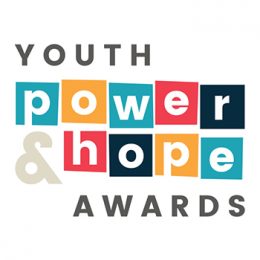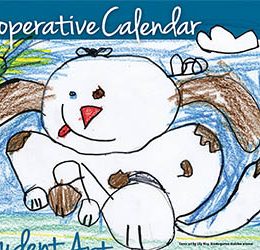Celebrate National Thank a Mail Carrier Day on Feb. 4!
On this holiday, write a thank you note to the person who delivers mail to your mailbox six days a week.
Place your note in your mailbox. Then raise the red “flag” on the side of the mailbox to alert your mail carrier that there’s something in there to pick up.
Mail carriers travel through every form of weather to guarantee you receive your mail as scheduled.

Sincerely yours: letter writing etiquette
When writing a thank you note, it’s important to include an appropriate greeting (or salutation) and closing (or valediction).
A common greeting is “dear” followed by the recipient’s name. In formal letters, use a courtesy title (Mr., Mrs., Miss, Dr., etc.) with the person’s last name. Informal letters should convey friendliness, and you can replace “dear” with “hello” or “hi” for a more conversational tone.
When finishing your letter, don’t forget to add a sign-off or closing before signing your name. Examples include “best regards,” “sincerely” and “yours truly.”
Do you know the origins and uses of these eight common sign-offs?
- Regards: This word comes from “regarder” a French word meaning “to look at.” It is now used to show affection and often follows “kind,” “warm” or “best.”
- Cheers: Derived from the late-Latin word “cana,” it actually means “face.” As time went on, “cheer” described joyfulness. Now, it’s used in celebratory or congratulatory notes.
- Cordially: This expression was used to say “with the deepest feeling.” “Cor,” a Latin root word, means “heart.” Today, “cordially” is considered formal and old-fashioned.
- Thanks: This simple expression of gratitude offers a wide range of interpretations, including “thanks so much” and “thanks for your help.” It would be perfect to use in your note to your mail carrier.
- Sincerely: This sign-off comes from the Latin word “sincerus,” which means “clean, pure and untainted.” This valediction is often used in letters, not emails, because of its formal tone.
- Best: This succinct expression is also used in “all the best” and “best wishes.” Some consider “best” to be an abrupt end to a letter while others enjoy its brevity and upbeat tone.
- Yours: Writers such as Charles Dickens and Jane Austen often used variations of “yours” and “yours truly.” This valediction might be too personal for professional correspondence.
- Respectfully: This term provides the utmost respect for the recipient. “Yours respectfully” personalizes and softens this valediction.
SOURCE: Oxford Dictionary



